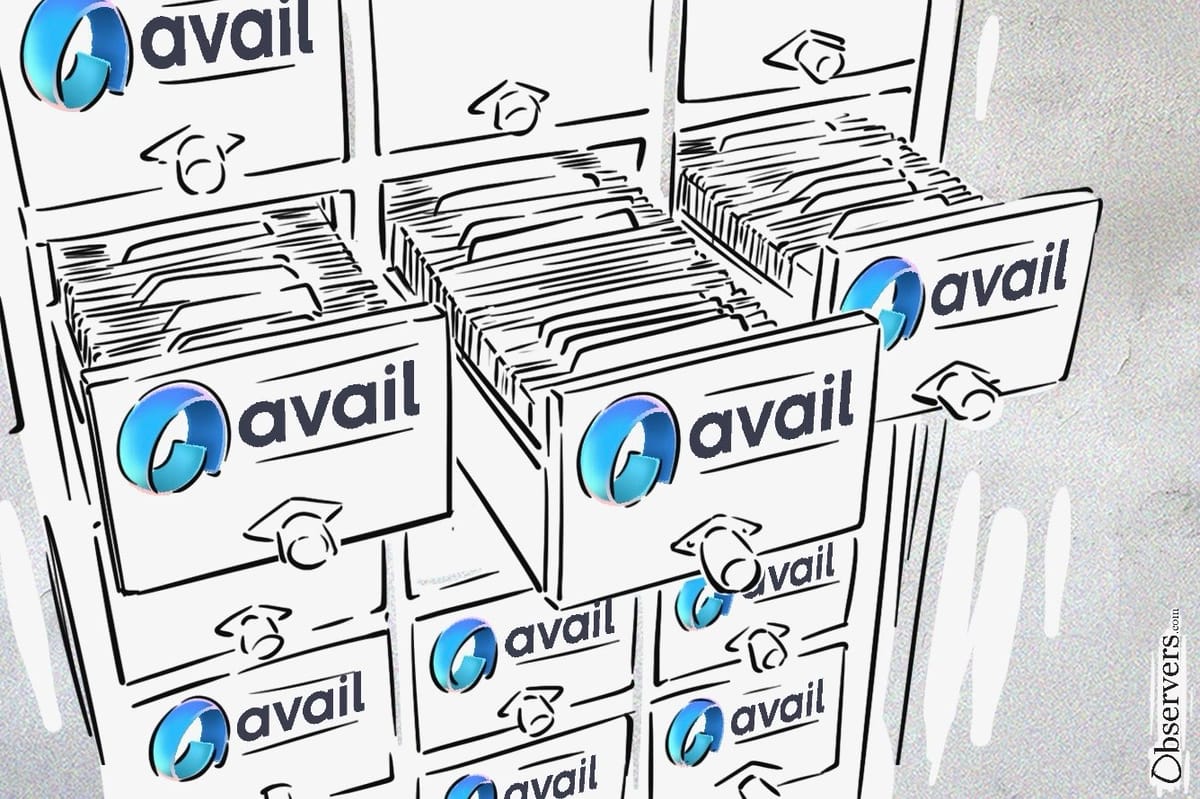
The highly anticipated data availability project Avail, co-led by Polygon co-founder Anurag Arjun, has finally launched on the mainnet. It raised $75 million in funding and offers investors a promising solution to the data availability (DA) problem seen in blockchains.
Data availability is essential in blockchains to ensure all participants can access and verify the data in new blocks. If data is not fully accessible, it can compromise the security and reliability of the blockchain network.
Typically, Layer 2 chains handle data availability by periodically transferring data back to the Ethereum mainnet. However, space on the Ethereum blockchain can be scarce and costly, which is where Avail steps in. It offers a cost-effective and efficient alternative for Layer 2 data storage.
Avail has already partnered with 110+ projects that are using its data availability solutions. Key partners include well-known Layer 2 networks like Arbitrum, Optimism, Polygon, StarkWare, and zkSync. These networks have the option to rely on Avail to manage their extensive transaction data.
We’ve been working closely with 110+ partners including @arbitrum, @Optimism, @0xpolygon, @StarkWareLtd, and @zksync prior to launch, with many more on the way. pic.twitter.com/QrVA1d2ect
— Avail (@AvailProject) July 23, 2024
Avail is not the only project tackling data availability issues. Earlier this year, Celestia launched a similar solution, and EigenDA from the restaking protocol EigenLayer has been available since the second quarter of 2024.
Although these three projects offer more or less the same solutions, they have been built differently, using various technological stacks, different consensus algorithms, and distinct blockchains. It remains to be seen which solutions, if any, will ultimately receive technological adoption remains to be seen.
Notably, this interest in data availability solutions grew when Ethereum experienced high data storage costs. However, after implementing the Dencun Upgrade and EIP-4844, Ethereum significantly reduced these costs. For example, after EIP-4844, the cost for Optimism to store data on Ethereum plummeted from around $500,000 per day to just $1,000.
While Ethereum's cost reduction initially challenged the appeal of new data availability solutions, the ongoing expansion of the Ethereum network may lead to future increases in data storage costs.
This potential scenario underlines the importance of solutions like Avail in the long run. However, there is also no guarantee that tomorrow Ethereum developers won’t come up with another “EIP-4844 style idea” that will further reduce data availability costs by another tenfold.
Currently, the Avail token has a market cap of $2 billion, making it the largest project among data availability solutions. Its future success and the justification for its valuation will largely depend on how effectively it integrates with other blockchain networks. We will continue to Observe.

